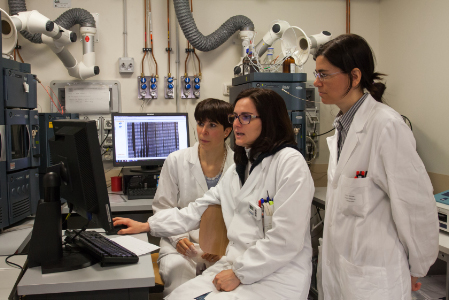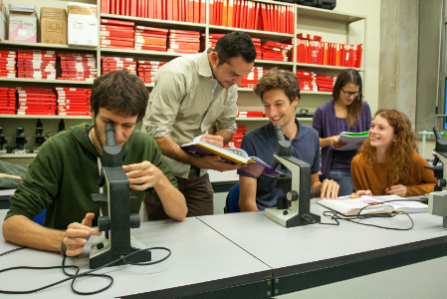- Autori:
-
Cattaneo, C; Di Blasi, R; Skert, C; Candoni, A; Martino, B; Di Renzo, N; Delia, M; Ballanti, S; Marchesi, F; Mancini, V; Orciuolo, E; Cesaro, S; Prezioso, L; Fanci, R; Nadali, G; Chierichini, A; Facchini, L; Picardi, M; Malagola, M; Orlando, V; Trecarichi, E M; Tumbarello, M; Aversa, F; Rossi, G; Pagano, L
- Titolo:
-
Bloodstream infections in haematological cancer patients colonized by multidrug-resistant bacteria
- Anno:
-
2018
- Tipologia prodotto:
-
Articolo in Rivista
- Tipologia ANVUR:
- Articolo su rivista
- Lingua:
-
Inglese
- Referee:
-
No
- Nome rivista:
- Annals of Hematology
- ISSN Rivista:
- 0939-5555
- N° Volume:
-
97
- Numero o Fascicolo:
-
9
- Intervallo pagine:
-
1717-1726
- Parole chiave:
-
Bloodstream infections; Colonization; Haematologic patients; Multidrug-resistant bacteria; Adolescent; Adult; Aged; Aged, 80 and over; Bacteremia; Bacterial Infections; Catheter-Related Infections; Child; Child, Preschool; Female; Hematologic Neoplasms; Humans; Infant; Infant, Newborn; Male; Middle Aged; Young Adult; Drug Resistance, Multiple, Bacterial
- Breve descrizione dei contenuti:
- Infections by multidrug-resistant (MDR) bacteria are a worrisome phenomenon in hematological patients. Data on the incidence of MDR colonization and related bloodstream infections (BSIs) in haematological patients are scarce. A multicentric prospective observational study was planned in 18 haematological institutions during a 6-month period. All patients showing MDR rectal colonization as well as occurrence of BSI at admission were recorded. One-hundred forty-four patients with MDR colonization were observed (6.5% of 2226 admissions). Extended spectrum beta-lactamase (ESBL)-producing (ESBL-P) enterobacteria were observed in 64/144 patients, carbapenem-resistant (CR) Gram-negative bacteria in 85/144 and vancomycin-resistant enterococci (VREs) in 9/144. Overall, 37 MDR-colonized patients (25.7%) developed at least one BSI; 23 of them (62.2%, 16% of the whole series) developed BSI by the same pathogen (MDRrel BSI), with a rate of 15.6% (10/64) for ESBL-P enterobacteria, 14.1% (12/85) for CR Gram-negative bacteria and 11.1% (1/9) for VRE. In 20/23 cases, MDRrel BSI occurred during neutropenia. After a median follow-up of 80 days, 18 patients died (12.5%). The 3-month overall survival was significantly lower for patients colonized with CR Gram-negative bacteria (83.6%) and VRE (77.8%) in comparison with those colonized with ESBL-P enterobacteria (96.8%). CR-rel BSI and the presence of a urinary catheter were independent predictors of mortality. MDR rectal colonization occurs in 6.5% of haematological inpatients and predicts a 16% probability of MDRrel BSI, particularly during neutropenia, as well as a higher probability of unfavourable outcomes in CR-rel BSIs. Tailored empiric antibiotic treatment should be decided on the basis of colonization.
- Id prodotto:
-
106305
- Handle IRIS:
-
11562/990434
- ultima modifica:
-
15 novembre 2022
- Citazione bibliografica:
-
Cattaneo, C; Di Blasi, R; Skert, C; Candoni, A; Martino, B; Di Renzo, N; Delia, M; Ballanti, S; Marchesi, F; Mancini, V; Orciuolo, E; Cesaro, S; Prezioso, L; Fanci, R; Nadali, G; Chierichini, A; Facchini, L; Picardi, M; Malagola, M; Orlando, V; Trecarichi, E M; Tumbarello, M; Aversa, F; Rossi, G; Pagano, L,
Bloodstream infections in haematological cancer patients colonized by multidrug-resistant bacteria
«Annals of Hematology
»
, vol.
97
, n.
9
,
2018
,
pp. 1717-1726
Consulta la scheda completa presente nel
repository istituzionale della Ricerca di Ateneo 








